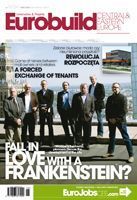Our round table participants all have some kind of a link with Warsaw: they were born, work or live here, and its growth and development is of great importance to all of them. They look upon Warsaw as they look at their mothers: they can see her faults, but they love her just the same Emil Górecki, ‘Eurobuild CEE’: The ‘Mercers Consulting’ city ranking by quality of living puts Central and Eastern European cities far down the table. Prague 71st, with Budapest, Vilnius and Ljubljana even further down. Warsaw is 85th. These are not rankings decided solely by architecture and city planning. What do you think? Would you say that Warsaw is a pleasant, friendly city for its residents?Sławomir Gzell, Warsaw University of Technology: Each such study can be criticized, although it is worth considering why Warsaw is well below where we would want it be. Personally, I feel that Warsaw has something I would call an energizing force: leaving the main railway station you fee




























































